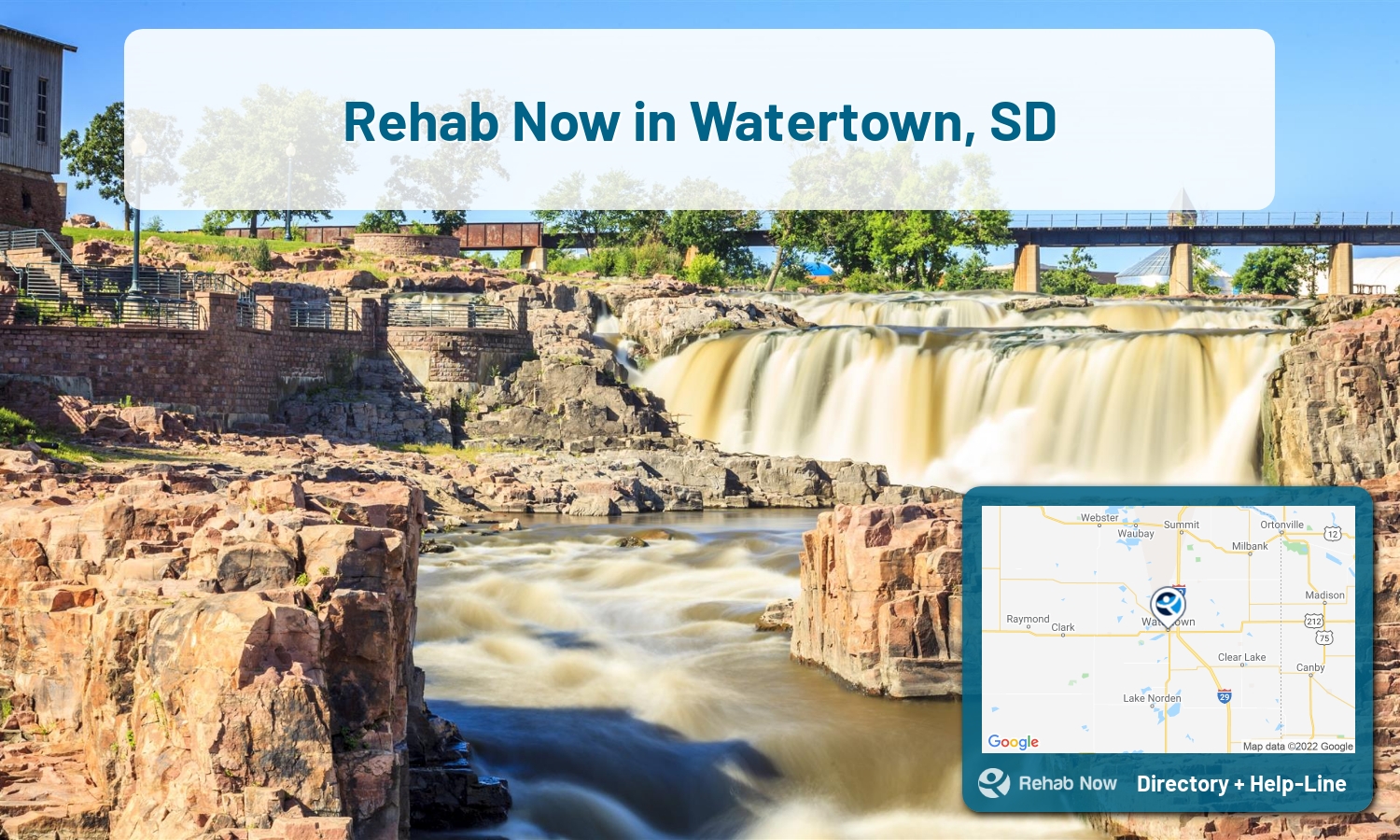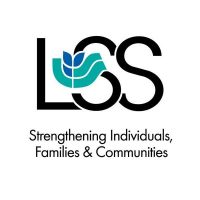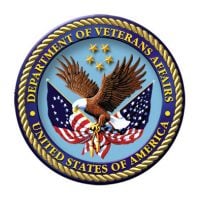Local and Nearby Rehab Listings for Watertown, SD
Drug addiction and abuse is a serious problem in the United States, and it is especially prevalent in certain areas of the country. According to recent statistics, Watertown, SD is one of these areas. In fact, the city ranks in the top 25% of all U.S. cities for drug addiction and abuse problems.
There are a number of reasons for this. One reason is that the city has easy access to drugs. Another reason is that there is a large population of people in Watertown, SD who are struggling with poverty and other economic problems. This combination of factors makes it easy for people to become addicted to drugs..
Our directory includes a lot of services available in Watertown, ready to help you or a loved one lead a safe and clean life, away from opioid abuse in South Dakota. Find out about a facility on our list below that suits your needs, or contact us for individual recommendations.
Don’t do it alone – we’re here to help you with admissions.
We will help you find treatment based on your location, budget, and specific needs and help you get started safely.
Free + Confidential Consultation
Browse 5 Centers in Watertown, South Dakota
Dr Mark Bontreger
Dr Mark Bontreger is a dedicated physician in Watertown, South Dakota offering comprehensive addiction treatment services, including individual counseling, group therapy, medication-assisted treatment, and more, with a focus on evidence-based approaches and personalized treatment plans.
Lutheran Social Services - Watertown Counseling in Watertown, South Dakota, offers comprehensive treatment for addiction, mental health, and eating disorders, providing various levels of care, including outpatient, inpatient, and aftercare support, and accepting private health insurance.
Watertown, South Dakota's Human Service Agency provides a range of services, including mental health counseling and substance abuse support, to individuals, families, and communities in the area, with a focus on recovery and self-sufficiency.
The Human Service Agency in Watertown, South Dakota offers comprehensive services for individuals with substance abuse and addiction issues, including individual and family counseling, mental health treatment, and skills-based programs, all through evidence-based practices and with state-level licensing and accreditation.

Sioux Falls VA Health Care System - Watertown CBOC

Drug and Alcohol Treatment in Watertown, SD
Drug abuse affects the abuser’s mind, body, and social life in various ways. It can also lead to serious health problems such as mental illness or heart disease. The first step is admitting that there is a problem and seeking help. There are various types of drug abuse treatment available, so it’s important to find the best one for you or your loved one.

What Types of Treatment Are Available in Watertown, South Dakota?
There are many different types of drug treatment available in Watertown, SD. Some of the most common include inpatient and outpatient rehab programs, 12-step programs, and support groups.
Inpatient rehab programs provide 24-hour care and supervision in a hospital-like setting. This type of program is a great choice for people who need intense, around-the-clock support to get sober.
Outpatient rehab programs allow you to continue living at home while receiving treatment. This type of program is a good option for people who don’t need as much care and supervision as inpatient rehab provides. It’s also a good choice for people who can’t afford to take time off work or school to go to inpatient rehab.
12-step programs, such as Alcoholics Anonymous and Narcotics Anonymous, are groups of people who meet regularly to support each other in their recovery from addiction. These programs follow a set of 12 steps that participants must work through to achieve and maintain sobriety.
Support groups are groups of people who come together to share their experiences and provide support to one another. There are many different types of support groups, each with its own focus.
Drug Abuse Statistics in Watertown, South Dakota
In the city of Watertown, there are about 2,000 people who are addicted to drugs. The most commonly abused drug are methamphetamine, heroin, and cocaine. In a survey of addicts, about 60% said that they started using drugs to cope with stress or other problems in their life.
The number of drug-related arrests in Watertown, SD has been increasing in recent years. In 2018, there were a total of 323 drug-related arrests in the city. This is a significant increase from the 234 drug-related arrests that were made in 2017.
- 68% of drug addicts in Watertown are between the ages of 18 and 34.
- 48% of all drug-related arrests in Watertown are for possession of drugs.
- 32% of adults in Watertown say that their drug use has caused them to lose their job or go to jail.
- 27% of high school students in Watertown get high at least once a week.
Additional Treatment Centers in South Dakota
Although South Dakota is a sparsely populated and somewhat isolated state, it is equally impacted by the national drug epidemic. Substance abuse remains a significant issue that leads to injuries and deaths every year. 17.27% of all deaths between 2008 and 2017 were drug and alcohol-related. Methamphetamines and alcohol are the most commonly abused drug of abuse for those entering treatment in South Dakota.
Still haven't found the right recovery center? Browse nearby South Dakota cities.
- Mission, SD (207.6 mi.)
- Hot Springs, SD (331.5 mi.)
- Howard, SD (64.4 mi.)
- Huron, SD (65.5 mi.)
- Parkston, SD (112.0 mi.)
- Kyle, SD (271.1 mi.)
- Philip, SD (232.4 mi.)
- Flandreau, SD (63.6 mi.)
- Webster, SD (36.4 mi.)
- Lemmon, SD (255.6 mi.)
- Ree Heights, SD (106.0 mi.)
- Sturgis, SD (316.6 mi.)
- Sioux Falls, SD (40)
- Rapid City, SD (27)
- Aberdeen, SD (10)
- Brookings, SD (6)
- Pierre, SD (6)
- Watertown, SD (5)
- Mitchell, SD (5)
- Winner, SD (4)
How Do You Know When Drug Rehab Is Necessary?
The first step is admitting that there is a problem. If you or someone you love is using drugs, it’s important to get help as soon as possible. Drug rehab can be necessary for many reasons, including:
- You can’t stop using drugs on your own
- You’ve tried to stop using drugs but couldn’t
- Drugs have caused problems in your relationships, work, or school
- You’re using drugs to cope with stress or other problems
If you’re not sure if drug rehab is necessary, talk to your doctor or a counselor. They can help you decide what’s best for you.
What Are the Rules and Regulations of Drug Rehab?
The regulation of drug rehab facilities varies from state to state. In general, you’ll need to be 18 years or older to attend drug rehab. Some facilities may require that you have a referral from a doctor or counselor. Others may accept self-referrals.
You’ll also need to be willing to abstain from drugs and alcohol while you’re in rehab. Drug rehab is a time for healing and growth, not for partying.
In most cases, you’ll be required to live at the rehab facility during your treatment. This allows you to focus on your recovery without any distractions. You’ll also likely have a regular curfew and be subject to drug tests.
What Is a Typical Day Like in Drug Rehab?
A typical day in drug rehab will vary depending on the facility you choose and the type of treatment you’re receiving. However, there are some common elements.
Most drug rehab facilities offer group and individual therapy. You’ll participate in group therapy sessions with other patients. These sessions are led by a counselor or therapist and focus on topics such as Drug Addiction, Withdrawal Symptoms, and Relapse Prevention.
You’ll also have individual therapy sessions with a counselor or therapist. These sessions are confidential and provide you with an opportunity to discuss your progress, struggles, and goals.
In addition to therapy, you may also participate in educational classes, recreation activities, and 12-step meetings. These activities provide you with additional tools for recovery and allow you to meet other people in recovery.
There are also recreational activities during free time, such as playing sports, watching TV, or reading.
What Are the Different Types of Therapy Used in Drug Rehab?
There are many different types of therapy used in drug rehab. Some of the most common include:
- Cognitive-Behavioral Therapy: This type of therapy helps you change the way you think and behave. It focuses on solving problems and improving communication skills.
- Dialectical Behavior Therapy: This type of therapy helps you manage your emotions. It focuses on teaching you how to cope with stress and conflict in a healthy way.
- Motivational Interviewing: This type of therapy helps you identify your goals and motivation for change. It also helps you overcome any ambivalence you may feel about recovery.
- Group Therapy: This type of therapy takes place in a group setting. It provides you with support and allows you to share your experiences with others.
- Family Therapy: This type of therapy helps improve communication and problem-solving skills within your family. It can help repair damaged relationships and support your recovery.
How Do I Find the Right Drug Rehab Center for Me?
The right center will provide individualized care and treatment that meets your unique needs. Look for a rehab center that’s licensed and accredited. This means that the center has met certain standards and is qualified to provide care.
It’s also important to find a center that offers the services and treatment approaches that you need. For example, if you have a co-occurring mental health disorder, look for a rehab center that offers dual diagnosis treatment.
You should also make sure the rehab center is comfortable and has an atmosphere that you feel good about. The staff should be friendly and supportive, and the center should offer a variety of activities to keep you busy.
Finally, make sure the center is affordable and fits into your budget. Ask about insurance coverage and payment options. A state-funded rehab center may be free or have a sliding scale fee. Private rehab centers can be expensive, but many offer scholarships and financing options.
Struggling with addiction in Watertown, South Dakota? RehabNow helps you find the best treatment center or rehab available. (888) 674-0062.




